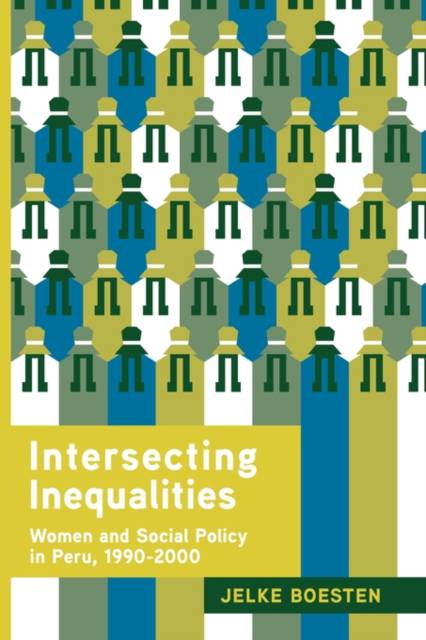
- Retrait gratuit dans votre magasin Club
- 7.000.000 titres dans notre catalogue
- Payer en toute sécurité
- Toujours un magasin près de chez vous
- Retrait gratuit dans votre magasin Club
- 7.000.0000 titres dans notre catalogue
- Payer en toute sécurité
- Toujours un magasin près de chez vous
Intersecting Inequalities
Women and Social Policy in Peru, 1990-2000
Jelke BoestenDescription
As the only male head of state to address the Fourth World Conference on Women in Beijing in 1995, Alberto Fujimori projected an image as a promoter of progressive policies to improve the condition of women, especially the poor, in society. And indeed, during his tenure, the Peruvian government did pursue such policies in several areas, including poverty relief, population control, and domestic violence. In Intersecting Inequalities, Jelke Boesten uses these policies as case studies, examining the relationship between gender/race/class/ethnic divisions and the state in its project of nation-building. Her investigation reveals that policies meant to further women's development and emancipation often reproduced the marginality they were supposed to fight. She also explores the strategies women developed to negotiate with and challenge the state.
Spécifications
Parties prenantes
- Auteur(s) :
- Editeur:
Contenu
- Nombre de pages :
- 192
- Langue:
- Anglais
Caractéristiques
- EAN:
- 9780271036717
- Date de parution :
- 15-05-13
- Format:
- Livre broché
- Format numérique:
- Trade paperback (VS)
- Dimensions :
- 152 mm x 229 mm
- Poids :
- 290 g

Les avis
Nous publions uniquement les avis qui respectent les conditions requises. Consultez nos conditions pour les avis.






